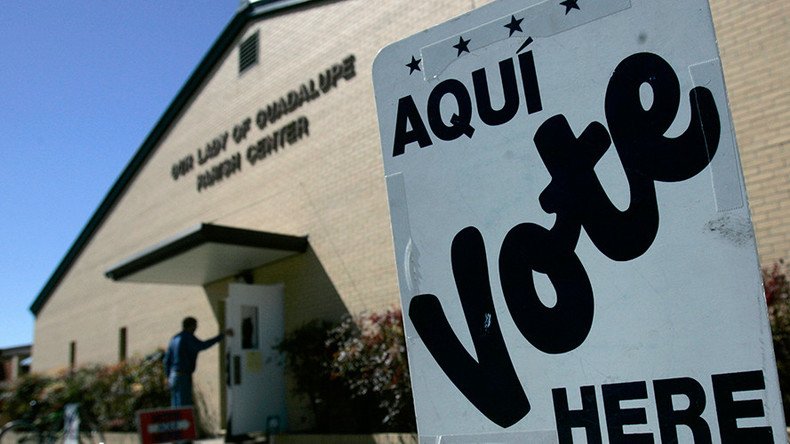Election systems to be treated as 'critical infrastructure' – Homeland Security Dept.

The White House has announced it is considering categorizing election systems as critical infrastructure. The declared intention to increase federal funding for protecting voting rights comes as Texas loosens discriminatory voter ID laws.
Amid concerns over cybersecurity risks to electoral systems, heightened by the recent hack of Democratic National Committee computers, President Barack Obama’s national security team is looking to improve the security of voting systems, Associated Press reported.
Classifying the election system as critical infrastructure would elevate it to the same levels of protection that electrical and banking systems receive. However, this could prove to be easier said than done.
The Wall Street Journal reported that elections are usually left to local governments to handle. In fact, elections are handled by about 9,000 state and local jurisdictions, according to Homeland Security Secretary Jeh Johnson.
Another difficult aspect of the project is that there is no standard method of voting. Some jurisdictions have modern electronic voting booths, while others still rely on paper ballots.
North Carolina voter ID law is discriminatory – federal appeals court https://t.co/HP1V9aHgBFpic.twitter.com/Bm9HrbVEq7
— RT America (@RT_America) July 30, 2016
While the federal government looks to begin plugging up holes in the leaky dam of the nation’s voting system, Texas has worked out a deal with civil rights groups to change some of its voter identification laws.
Last month, the US Court of Appeals for the Fifth Circuit ordered that Texas fix its laws requiring government-issued IDs. While officials in Texas did consider concealed-weapon licenses to be valid forms of identification, they did not accept IDs owned more frequently by poor voters, such as student IDs, public assistance IDs or government employee IDs.
The lawsuit against Texas claimed that the laws excluded up to 600,000 voters, who were primarily minorities and poor.
While Texas defended its requirements by claiming that it was an attempt to prevent voter fraud, the state worked out a compromise with civil rights groups. Instead of requiring government-issued IDs, a voter can vote where their name appears on the voting roll. However, instead of the strict ID requirements, they can show any government document displaying their name and address or a valid voter registration card. In addition, the voters will be required to sign a declaration that states they had a reasonable difficulty in obtaining other forms of identification.
The deal still has to be approved by a federal judge, but it’s unclear whether it will last beyond November’s presidential election. Texas Attorney General Ken Paxton told Reuters that his office plans to appeal the decision in the US Supreme Court.
#TheBigPicture: @Thom_Hartmann breaks down voter ID laws and the $74 million GOP spent catching 31 violations pic.twitter.com/u1hrcA303D
— RT America (@RT_America) August 4, 2016












